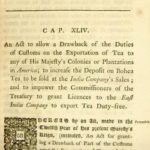This lesson will focus on freedom of assembly, as found in the First Amendment. Students will consider the importance of the right to assemble and protest by analyzing cases where First Amendment rights were in question. Using the case National Socialist Party of America v. Village of Skokie, students will consider if the government is ever allowed to control the ability to express ideas in public because viewpoints are controversial, offensive, or painful. Students will use primary sources and Supreme Court cases to consider whether the courts made the correct decision in the National Socialist Party v. Skokie case. Students will be able to form an opinion on the essential question: Is the government ever justified to restrict the freedom to assemble?
Too Many Candidates vs. Too Few
Explore the role of third-party candidates and how the American political system makes it very difficult for anyone outside the Republican or Democratic Party to win the White House. Registration is required to view this resource.
Freedom of Assembly: National Socialist Party v. Skokie
This film explores the First Amendment right of the “people peaceably to assemble” through the lens of the U.S. Supreme Court case National Socialist Party of America v. Village of Skokie. The legal fight between neo-Nazis and Holocaust survivors over a planned march in a predominantly Jewish community led to a ruling that said the neo-Nazis could not be banned from marching peacefully because of the content of their message.
Turning Points in the American Revolution

This short video traces the crises of the 1760s (e.g., the Stamp Act, the Townshend Act) through to the relatively quiet early 1770s, culminating in the Boston Tea Party of 1773. Professor Jack Rakove emphasizes the role of individual in history. Governor Thomas Hutchinson forced a crisis—the Boston Tea Party–by insisting on strict enforcement of the Tea Act. He could have chosen a different tactic (as did other governors), but chose not to.
How a Bill Becomes a Law for AP Gov
A lesson plan for one 80-minute class at the AP level. In it students will identify the main steps in the process of creating and passing legislation:
-Explain the significance of party control and committee work in the Congress in the legislative process
-Identify the role that Congressional leaders such as the House of Representatives and the Senate Majority Leader play in the process of agenda-setting
-Identify the role the President plays in the law-making process
-Explain the reasons why the Founders intended the law-making process to be difficult
Causes of the American Revolution

This short video examines the Boston Tea Party of 1773 as the critical event which transformed political discussion about British imperial authority into an active source of controversy. By the early 1770’s, British and Americans thought differently about the extent of Parliament’s power to legislate for the American colonies. Professor Jack Rakove notes that British punishment of Massachusetts for its defiance of the Tea Act precluded a peaceful resolution of the political controversy.
Hoping for Unity, Fearing Rebellion
National conventions are supposed to be a show of party power and solidarity, but there’s always the potential for dissent. See how they have evolved and how they can impact candidates and the electorate. Registration on NewseumED is required to view resource.
Lesson Plan: Choice Board – Researching Your U.S. Senators
This lesson provides students with the opportunity to explore their members of the U.S. Senate and how they represent their constituents as a fundamental part of civic literacy.
Women’s Suffrage and the 19th Amendment
This lesson looks at the historical context of women’s suffrage, tactics used in the movement, and different perspectives of the suffrage movement.
Government and Politics Infographics
A set of government and politics infographics that teachers can print out for their students, use for their exams, or use to create posters for their classroom.